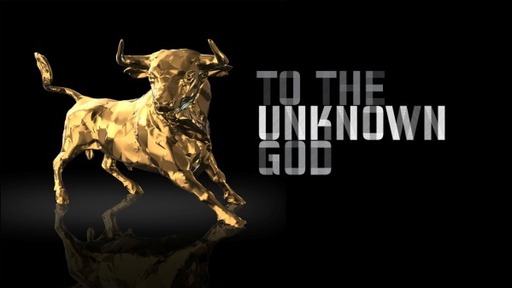To the Unkown God

I. Attracted to Something New
Epicureans were thoroughgoing materialists, believing that everything came from atoms or particles of matter. There was no life beyond this; all that was human returned to matter at death. Though the Epicureans did not deny the existence of gods, they saw them as totally indifferent to humanity. They did not believe in providence of any sort; and if one truly learned from the gods, that person would try to live the same sort of detached and tranquil life as they, as free from pain and passion and superstitious fears as they.
The Stoics had a more lively view of the gods than the Epicureans, believing very much in the divine providence. They were pantheists, believing that the ultimate divine principle was to be found in all of nature, including human beings. This spark of divinity, which they referred to as the logos, was the cohesive rational principle that bound the entire cosmic order together. Humans thus realized their fullest potential when they lived by reason. By reason, i.e., the divine principle within them which linked them with the gods and nature, they could discover ultimate truth for themselves. The Stoics generally had a rather high ethic and put great stock on self-sufficiency. Since they viewed all humans as bound together by common possession of the divine logos, they also had a strong sense of universal brotherhood. The mention of these schools is not incidental. Paul would take up some of their thought in his Areopagus speech, particularly that of the Stoics, and thoroughly redirect it in line with the Creator God of the Old Testament.
A term (Gk. spermológos “one picking up seeds,” fig. one who is always “picking up” some information and prating about it without understanding its import